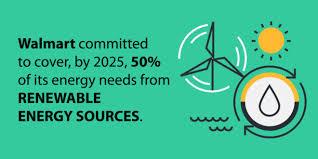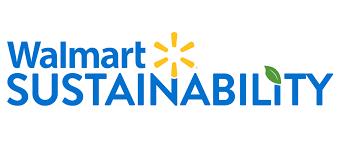 Walmart announced that a $2 billion green bond will be part of a $7 billion senior unsecured note that the company has successfully closed. Proceeds will be used to advance Walmart sustainability goals that include achieving 100 percent renewable energy by 2035 across global operations, electrifying vehicles to eliminate emissions and to install low-impact refrigeration systems for all facilities by 2040. The current year represent the fourth year of project Gigaton™ that is intended to avoid one billion metric tons of greenhouse gas emissions by 2030.
Walmart announced that a $2 billion green bond will be part of a $7 billion senior unsecured note that the company has successfully closed. Proceeds will be used to advance Walmart sustainability goals that include achieving 100 percent renewable energy by 2035 across global operations, electrifying vehicles to eliminate emissions and to install low-impact refrigeration systems for all facilities by 2040. The current year represent the fourth year of project Gigaton™ that is intended to avoid one billion metric tons of greenhouse gas emissions by 2030.
Proceeds from the bond will be directed towards:
- Renewable energy projects to avoid using fossil fuel
- Sustainable transport using electric, hydrogen and hybrid vehicles through the entire supply chain
- Modifying buildings for optimal energy efficiency
- Attaining zero waste including closed-loop material flows
- Conservation of water including monitoring, treatment and recycling
- Restoration of habitat and conservation on all facilities
 As Walmart does, so follows the industry. As a major retailer, Walmart will influence decisions by competitors. It is self-evident that standards imposed by Walmart will be extended to suppliers. The purchasing power of the company will be applied to first encourage and then demand compliance with company ESG standards. The egg industry is accordingly on notice to monitor Walmart sustainability reports and to mirror innovations and actions by the company. Areas of concentration will include packaging, transport to DCs, evidence of environmental stewardship including water and land resources and the use of renewable energy.
As Walmart does, so follows the industry. As a major retailer, Walmart will influence decisions by competitors. It is self-evident that standards imposed by Walmart will be extended to suppliers. The purchasing power of the company will be applied to first encourage and then demand compliance with company ESG standards. The egg industry is accordingly on notice to monitor Walmart sustainability reports and to mirror innovations and actions by the company. Areas of concentration will include packaging, transport to DCs, evidence of environmental stewardship including water and land resources and the use of renewable energy.